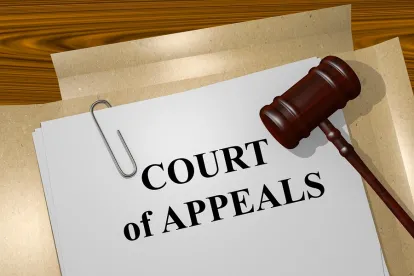Attorneys often treat the question of the sufficiency of the evidence as a binary inquiry: either the evidence is sufficient to support the verdict, or it isn’t. But a Missouri appellate court recently called that view into question, illustrating that there are crucial preservation requirements at play if the issue is to be raised on appeal.
In Holmes v. Kansas City Public School District, __ S.W.3d __, WD 80763, 2018 WL 6492727 (Mo. Ct. App. Dec. 11, 2018), a public school district appealed from a judgment entered against it upon a jury verdict in favor of two plaintiffs claiming retaliation. In the trial court, the school district challenged the sufficiency of the evidence, arguing among other things that the evidence was insufficient to support 1) a good faith belief that discrimination had occurred by the date the plaintiffs made their complaints, and 2) any adverse employment action.
On appeal, the school district again challenged the sufficiency of the evidence below, this time arguing that 1) most of the alleged retaliatory acts occurred before the date the plaintiffs’ complaints of discrimination were filed with their employer, and 2) the acts alleged after that date were insufficient to establish an adverse employment action. Acknowledging the preservation concern, the school district expressly requested plain error review in the event the appellate court determined the argument was unpreserved. The school district sought to excuse any variations between its trial and appellate arguments by asserting it could not “track and analyze the various permutations of” the issue until it had the benefit of the trial transcript.
Nonetheless, the appellate court held that the sufficiency challenge was waived. It said the particular “claim regarding timing” asserted on appeal had not been articulated to the trial court, expressly rejecting the contention that the sufficiency arguments raised below had adequately preserved the issue. Further, the court observed that some of the school district’s trial court arguments conflicted with its appellate contentions.
Additionally, the court declined the school district’s invitation for plain error review. In that regard, it concluded: “If parsing through the post-trial transcript was required for [the school district] to make this argument, the trial court could hardly have been expected to reach the conclusions [the school district] now advocates as obvious and clear.”
As this case starkly demonstrates, challenging the sufficiency of the evidence on appeal is not a one-size-fits-all issue, even where the appellate argument is based on the same evidence asserted to be insufficient below. Instead, litigants risk waiver by failing to present the same particular sufficiency challenge in both courts.
Practice Tip
If the available arguments to challenge the sufficiency of the evidence involve conflicting views of the evidence, consider making them in the alternative to one another. This will maximize the availability of appellate review and minimize the likelihood of waiver.




 />i
/>i

